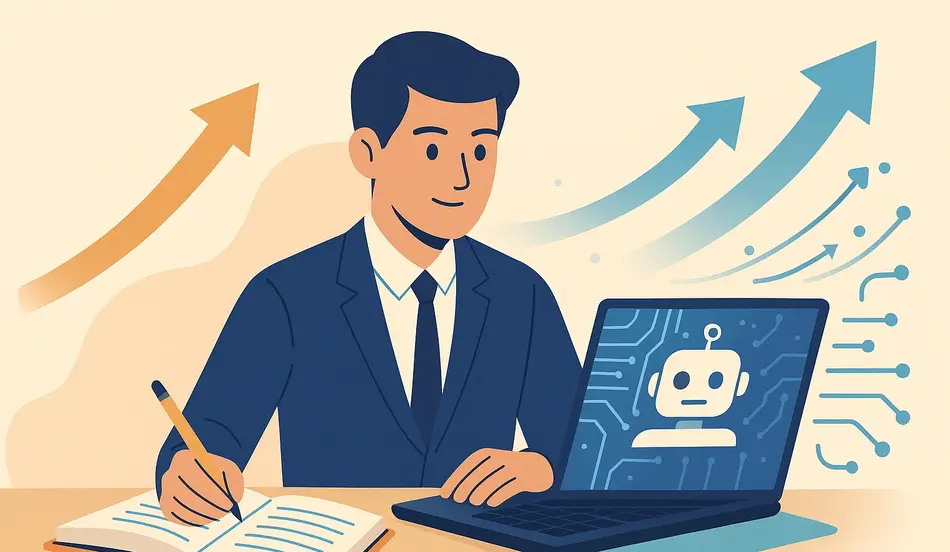For early career professionals entering software development today, the landscape looks radically different from just a few years ago. Artificial intelligence tools are no longer futuristic—they’re already in the developer’s toolkit, promising to speed up tasks, automate debugging, and even generate code.
But here’s the catch: if you’re just starting out, the real question is not “How do I use AI?” but “How do I make the most of AI without losing sight of what makes me valuable as a developer?”
The answer may surprise you: the fundamentals matter more than ever.
Guardrails Lead to Better Outcomes
One of the clearest lessons emerging from AI-assisted programming is that the more structure and guardrails you put in place, the better the results.
Clear requirements, well-defined test cases, and robust exception handling all make AI-generated code more reliable. This isn’t new wisdom—it’s the foundation of good software engineering. But AI forces developers to rediscover these habits with urgency.
Consider a simple scenario: you ask an AI to generate a sorting algorithm. Without guardrails, you might get a functional answer, but will it handle edge cases like empty arrays or duplicate values? Maybe not. If you define requirements explicitly—time complexity limits, memory usage constraints, or exception handling rules—the AI output is dramatically stronger.
AI doesn’t reduce the need for fundamentals. It rewards them.
Tools Over Rules
Developers have always been more responsive to tools than to abstract guidelines. Telling someone to “write better documentation” rarely works; giving them a tool that enforces documentation standards does.
AI is now functioning as such a tool. It doesn’t replace developer judgment—it amplifies it. If your inputs are vague, your outputs will be weak. But if your specifications are detailed, your tests thorough, and your thinking structured, AI accelerates the process rather than derailing it.
In other words: AI doesn’t excuse sloppy work. It exposes it.
The Hard Part Isn’t the “Happy Path”
Every beginner learns to code by writing the “happy path”: the ideal flow where everything works as expected. That’s the easy part.
The real test of a developer lies in exception handling—those messy, unpredictable conditions that emerge from the real world. Off-by-one errors, unexpected user inputs, edge cases that break otherwise clean code—these are where strong engineers prove their worth.
AI, for all its sophistication, struggles with this too. It can generate code snippets quickly, but it doesn’t always anticipate the messy realities of production environments. That’s why developers remain critical.
Computer scientist Fred Brooks famously distinguished between accidental complexity (difficulties created by tools and processes) and essential complexity (the inherent messiness of the real world). AI can help reduce accidental complexity, but essential complexity still belongs to humans to solve.
Why This Matters for Early Career Developers
So what does all this mean if you’re just beginning your career in software development?
Here are five key takeaways:
1. Master the Fundamentals
Learn how to write clean, testable code. Understand data structures and algorithms. Get comfortable designing test cases, writing documentation, and thinking critically about edge conditions. AI won’t make these skills obsolete—it will magnify whether you have them.
2. Use AI as a Partner, Not a Crutch
Treat AI as an accelerator, not a replacement. Let it help you brainstorm solutions, generate boilerplate code, or check your syntax. But always validate the output. Ask yourself: does this solution really solve the problem, or just appear to?
3. Embrace the Messiness of Real-World Problems
Software lives in the real world, where users behave unpredictably and systems fail in unexpected ways. Train yourself to think about failure points, unexpected inputs, and stress tests. AI may not anticipate these—but you can.
4. Develop Systems Thinking
The AI era is blurring traditional roles. Engineers are expected not just to code, but to think about product strategy, design, and user experience. Cultivate the ability to see the bigger picture, not just the technical detail.
5. Build Communication Skills
Your ability to explain requirements clearly and collaborate across teams is just as important as writing code. AI can generate syntax, but it can’t negotiate project scope or align stakeholders. That’s your job.
Practical Example: Turning Side Projects Into Real Experience
Imagine you’re a junior developer building a small web app. Using AI, you quickly generate a login form with authentication. Great—but what happens when a user forgets their password? What about multi-factor authentication? How does your system handle 10,000 login attempts in one minute?
These aren’t just coding problems—they’re design and security problems. By thinking through them, writing test cases, and documenting assumptions, you’re doing the work that AI can’t.
And here’s the bonus: side projects like this aren’t just learning exercises. If you publish your app, get users, or contribute to open-source, you turn “practice” into professional experience. Employers see that as proof you can move from theory to impact.
Turn Side Projects Into Career Opportunities
Side projects aren’t just hobbies — they showcase initiative, creativity, and real-world skills. Employers can benefit by hiring candidates who bring passion projects and proven results to the table. Post your job on WhatJobs today and connect with self-starters ready to turn ideas into impact.
Post a Job Free for 30 Days →Future-Proofing Your Career
It’s easy to feel anxious about AI replacing entry-level jobs. But the developers who thrive will be those who combine technical fundamentals with human judgment.
- AI can generate code, but it can’t decide whether the requirements are correct.
- AI can refactor a function, but it can’t anticipate all the political, business, and user factors that define success.
- AI can accelerate learning, but it can’t replace the resilience and curiosity you build by solving real problems.
If you invest now in learning fundamentals, practicing structured thinking, and developing broader career skills, you’ll be ahead of peers who rely on AI without truly understanding the code behind it.
FAQs: Early Career Software Development in the AI Era
Q1: Does AI make coding skills less important for beginners?
Not at all. AI can generate code, but without coding fundamentals you won’t know if the solution is correct, secure, or efficient. Strong programming knowledge is still the foundation.
Q2: What should I focus on learning first—AI tools or core programming?
Start with core programming: algorithms, problem-solving, and testing. Once you’re confident, integrate AI into your workflow. Without that base, AI becomes a shortcut that hides gaps in your knowledge.
Q3: How can I use AI responsibly as a junior developer?
Use AI as a learning aid—ask it to explain concepts, generate test cases, or draft solutions. But always review, test, and improve the outputs yourself. Treat it like a mentor, not a substitute.
Q4: Will AI eventually replace entry-level developer roles?
Some repetitive tasks may be automated, but human oversight is essential. Companies will still need developers to verify, refine, and adapt AI outputs to messy real-world conditions.
Q5: What soft skills should I prioritize?
Communication, critical thinking, and adaptability. Clear writing, effective teamwork, and the ability to question assumptions will differentiate you from someone who simply prompts an AI.
Final Thought
AI is not a “silver bullet.” It won’t eliminate the core responsibilities of software engineering. Instead, it makes those fundamentals more important than ever.
For early career developers, the best way to stand out isn’t just to know how to prompt an AI. It’s to understand how complexity plays out in code, to apply the fundamentals rigorously, and to guide both humans and machines toward reliable solutions.
The developers who succeed won’t be the ones who hand over responsibility to AI—they’ll be the ones who know how to make AI work for them.






